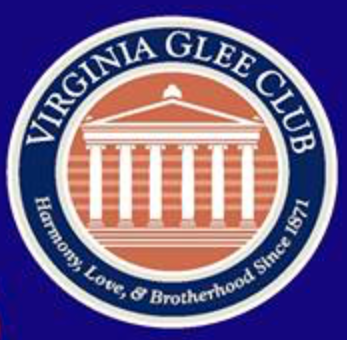Gerachis, George; Kreiling, Nancy (1978-10-31). "'What record label are you on?'". Cavalier Daily: pp. 22-24. http://news.google.com/newspapers?nid=1807&dat=19781031&id=_J8cAAAAIBAJ&sjid=52gEAAAAIBAJ&pg=3693,2223432.
'What record label are you on?'[]
On the marble altar of St. Paul's Church in Cambridge stands a group of tuxedoed singers, like a palette against the icons of the background. Standing before them, swaying serenely to the music, is a silver-haired conductor, whose baton seems to paint the air with subtle shades of sound.
Under his direction, a work of tremendous richness unfolds. The musical picture gradually nears completion as the diminutive conductor adds the brushstrokes of his baton more slowly. Then, with one last wave, the still-life is complete -- the final strains fade gently away.
The moment is short-lived. Applause shatters the silence as all comes back to reality. The silhouettes regain their human forms, and the bowing conductor turns to reveal a small mustache and a red face, as all stride off stage into the downstairs warm-up room.
"Party time!" whoops one singer as pandemonium quickly breaks loose. Other participants of this year's Harvard Festival of Men's Choruses flood in to congratulate the Virginia Glee Club on its performance.
A somewhat disheveled gentleman breaks through the crowd and approaches Director Donald Loach.
"My name is Craig Wright," he begins. "I'm a musicologist at Yale and I…"
"Oh, you don't have to introduce yourself to me," interrupts Loach. "I've read your book on Renaissance music and I was ecstatic that you could come up from New Haven to give this year's special guest lecture."
"Well, thank you. I just wanted to tell you that I was tremendously impressed with the sound of your group. I'm anxious to hear some of your other efforts. What record label are you on?"
Record label? Loach, taken aback, wonders how he can explain to this famous scholar that his group can't afford the studio time necessary to produce a record -- that the only way the singers have been able to come to Harvard was by dipping into their own pockets to cover expenses. Loach suddenly felt like a ragamuffin in the court of the king.
Anyone who has attended the Glee Club's Christmas Concert probably knows that the group is something special, but few realize how far beyond 'The Twelve Days of Christmas' the group has set its sights.
At a time when other schools are dropping their all-male choruses, the University's Glee Club has flourished. Despite their musical success, the Glee Club is continually plagued by a lack of funds -- a situation unknown to such heavily endowed rivals as the Harvard Glee Club.
Roughly 90 percent of the club's operating budget must be self-generated and two percent of its funds come from SAF allocations. Members who wish to go must pay for all foreign, and some domestic tours.
The problem is compounded when one realizes that a Glee Club member who goes on a foreign tour generally must forego the first two or three weeks' wages of his summer job. The opportunity cost of a three week tour to France, for instance, is not the $1200 of the package plan, but $1600 and up. In contrast, Glee Clubs from many other schools actually tour to Europe free, and some even pay their members for going on domestic tours.
The group hit upon two solutions. The first has been to invite women's choruses from other schools to sing at concerts. Next semester's concert with Mount Holyoke is an example. The second solution involves developing an all-new repertoire of music.
Aside from managing to make itself known outside Charlottesville despite its financial woes, another problem for the Glee Club has been finding new music. The selection of music for all-male choruses is limited, and "we found ourselves having to repeat the same pieces every four years or so," says Loach.
One glee club member sums up their success. "We do have tradition on our side. The club's been around a long time, it's a real party organization, and it has a great reputation at a lot of music-conscious schools."
Loach, a specialist in Renaissance music, is creating a section of countertenors (voices trained in falsetto to sing the very high parts in many Renaissance pieces) which gives the Glee Club an added dimension. "No other glee club, to my knowledge, has a countertenor section," says Loach, "so they can't really do the same pieces we do."
The group still presents fun Old-U music at its fall Football Concert, and gives an annual concert-on-the-Lawn in the spring. Then there's always that Christmas concert...
